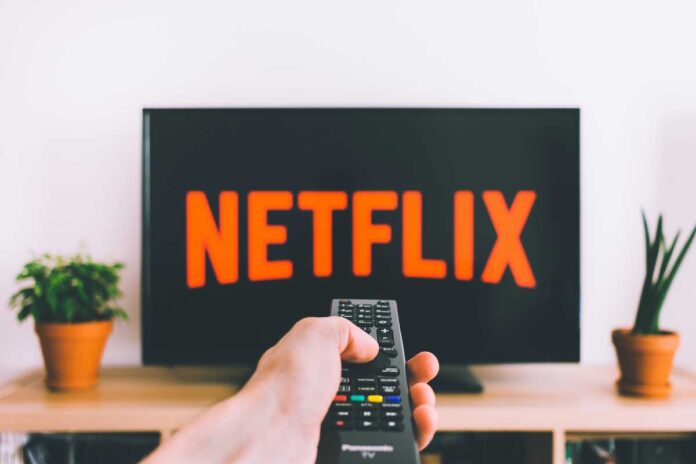Nowadays, Netflix is not only streaming in more than 190 countries, but it also produces movies in a variety of these countries. This provides an invaluable platform for less financially capable nations to reach a wider audience, a potentially global one. The implications are multifaceted, but not always positive. Aware that Netflix is only but one of these global streaming platforms, what are some tangible outcomes of this unprecedented opportunity for a global showcasing of cultures through media productions, and how can it backlash when this chance is misused or even abused?
To understand the phenomenon, it is necessary to take a few steps back. First came the US with almighty Hollywood and to a lesser extent other Western countries, only rivalled by Japan (and even outpaced at times thanks to ‘anime’). This period was then followed by an eclectic variety inclusive of producers as diverse as Hong Kong and Bollywood that steadily acquired audiences beyond their borders. More recently, South Korea is arguably the first country that comes to mind as the quintessential representation of soft power and overall appeal and sheer ‘coolness’. All of this may have started with K-pop–their reinterpretation of popular music–or even earlier thanks to brands such as Samsung and LG, but it soon expanded to movies and series (a lot of them), food, fashion and style, not to forget beauty care.
Both the Korean government and Netflix (among others) noticed, and thanks to public-private collaborations, the so-called Korean Wave gained momentum to become the global phenomenon that it is today. According to a Stanford scholar, “Korean media has reached the pinnacle of global success by providing easy access to content, approachable and likable characters, and high-quality production.” Selling, let alone manufacturing ‘coolness’ is not easy, but South Korea somehow managed to do so. Through a comparable approach, sleek and appealing productions have recently appeared on streaming platforms coming from countries as diverse as Poland, Vietnam, Chile, and many more. Surely, sleekness and appeal may only go so far if the plot and acting are bland and uninspired, but it is nonetheless a start, or a chance, for minor players to present and promote part of their culture, landmarks, cuisine, and more.
The showcasing of a certain country’s productions through global media streaming platforms, which are relatively affordable and conveniently a click away, is thus potentially able to increase tourism and trade, and–at the very least–bring beneficial attention from wider audiences. It is certainly not the first time that the success of a movie has resulted in tangible benefits such as a spike in tourism, one that may last if taken advantage of. This can be seen as a part of a public diplomacy campaign, and it is often referred to as destination (or culinary) marketing, or place branding.
These, beyond over-tourism perhaps, can all be seen as positive developments, but there are some drawbacks, both inherent in the Netflix format and some that are more specific to a country.
To begin with the former type, Netflix Originals (movies produced by Netflix itself) allow an incredible and eclectic variety of offers but possibly at the expense of ‘originality’ (no pun intended) if rigid guidelines and plotlines are followed. Yet it can still give visibility to productions from countries with limited chances to do so. For instance, for the casual viewer, it may not be as straightforward to relate a Netflix Original to a specific country–especially if watched dubbed–but the more people are exposed the greater the chances to familiarize and appreciate a growing variety of diverse cultures. This can possibly help demystifying some stereotypes while embracing others that are hopefully more positive and realistic ones.
Even more concerning, in an increasingly polarized world, Netflix Originals have been often accused of promoting certain liberal and progressive (some would label them as ‘woke’) ideas. Yet, at the same time, they provide some potentially widespread and relatable cultural points of reference to be shared and discussed among different people. Is this a new beginning towards a global culture? Unlikely, but at least it offers a platform to test and evaluate what may be seen as acceptable, what may be not, and why.
In some extreme cases, one can observe the opposite outcome of the sought soft power attraction through cases of soft power disempowerment. A movie o or series could get attention for the wrong reasons and eventually negatively affect the reputation of a country. This, however, is a limited risk, and the potential benefits are generally far greater. An additional concern, whether realistic or not, is whether there is an agenda behind the work and underlying message of streaming platforms, such as Russia accusing the US government of “using Netflix to get into its people’s heads.”
So, to wrap up, is Netflix and global streaming platforms’ cultural showcasing a double-edged sword development that can flatten cultural specificities and even lead to cultural and geopolitical clashes? Hardly. On the bright side, it gives far-away audiences the chance to consume well-packaged (although not always representative nor realistic) bites of lesser-known cultures and realities.
Referring to the title of this article, can Netflix be seen as a soft power multiplier? For the most part, it can. The platform constitutes a convenient and generally harmless window on the diverse world out there. The hope is that genuine curiosity about different cultures would eventually arise and propagate thanks to enthusiastic viewers.
Are you one of them?













